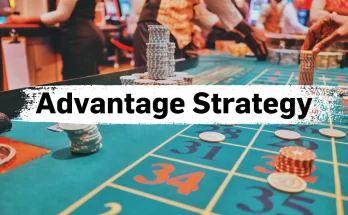Gambling is an addictive practice where some value (money, materials or something else) is betted in hopes of winning something of equal or greater worth. Gambling can quickly lead to financial problems as well as family separation.
Gaming casinos can lead to social issues like strain on relationships and unemployment, and can increase crime in areas with casinos located.
Legality
Gambling has been part of human culture for millennia, and has long been considered an activity with potential detrimental consequences to wellbeing. Gambling may serve as an enjoyable pastime or form of entertainment – even as an escape from daily stressors; but when done excessively it can bring harm both to those gambling themselves and to their loved ones.
Gambling unquestionably brings some economic benefits, yet further research into its costs must take place to establish their full effects and costs (Grinols 1995). Most studies on gross effects do not seek to provide an objective perspective, instead favoring identification of economic gains over cost estimation (Grinols 1995).
Gambling often results in intangible costs that can be difficult to measure, including environmental impacts, displacement of local residents and an increase in crime. Furthermore, it often increases credit costs throughout an economy due to bankruptcies or bad debts.
Convenience
Gambling is an activity in which bets are placed on events with the goal of winning material goods, such as money. Gambling can become highly addictive and drain savings – leading some people down a dangerous path toward financial ruin and marital discord. Furthermore, it can have detrimental repercussions for relationships and work life – therefore understanding its negative aspects is vital for good decision-making.
Online gambling can be convenient and enjoyable, yet potentially risky. To protect yourself and set a spending limit responsibly, always select a trustworthy gambling website with age verification features and secure payment methods.
Gambling is a leisure activity with broad scope. From social to pathological gambling, its effects range from casual social engagements. Pathological gambling has devastating repercussions for one’s health, mental wellbeing and family relationships; furthermore it hinders one’s ability to work and study effectively leading to income and self-esteem losses and even insomnia or physical ailments for those addicted.
Addiction
Gambling addiction can have devastating repercussions in one’s life. It can disrupt relationships, job performance and finances; some even commit crimes such as embezzlement and theft to finance their habit. Problem gamblers frequently suffer from sleep deprivation and misplaced priorities; they might spend hours every day or night online or playing computer games while neglecting other duties that are due them.
For breaking an addiction, it is essential to establish a support network of family, friends and professional treatment services like Gamblers Anonymous. Furthermore, other stress-relief techniques like exercise, healthy eating habits and enough rest may also be effective. Finally, joining a support group with other people who have successfully overcome gambling problems is also helpful as this can keep your recovery plan on track.
Social impact
Though recent improvements in gambling research methodology have brought significant advancement, more work must be done to estimate its social impacts. Most studies conducted previously focused on positive economic benefits while neglecting to include negative costs related to pathological gambling; moreover, many relied heavily on critical estimates from single studies which could introduce bias into their conclusions.
Gambling’s effects can be broadly classified into three classes: financial, labor and health-and-wellbeing impacts. These manifestations occur on multiple levels – personal, interpersonal and societal. Financial impacts include changes to personal finances such as income loss, expenditure and debt accumulation; labor impacts include its effect on employment opportunities and job quality; finally health-wellbeing impacts include physical, psychological and emotional losses caused by gambling that can be measured using disability weights which quantify per-person burden of health conditions on quality of life.




